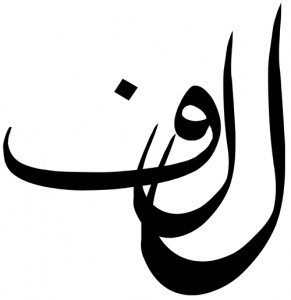By Brittany Hite
The Wall Street Journal, Feb. 20, 2013

Pakistan is a country that in recent memory has been better known globally for bombs than for books.
But organizers of the country’s first Lahore Literary Festival, which kicks off this weekend, are hoping to help change that perception.
In the past few years, literature festivals have been popping up across Asia, from Japan to Jaipur—with even Myanmar getting in on the act earlier this month. So Razi Ahmed, a project development director and occasional writer himself, found it strange that Pakistan’s storied city of Lahore—historically known as a cultural hub of the Subcontinent—didn’t have a festival of its own, and set about creating one.
“A city of this kind has a powerful legacy of the arts,” he said, with a long tradition over millennia of housing some of the region’s most influential artists, poets and musicians. “The idea for the [festival] was driven by a broader societal opinion that Lahore, a bastion of Pakistani and South Asian culture and literature, merits a literary festival to recognize the city’s past and present contributions to the arts.”
Nusrat Jamil, chairperson of the festival’s advisory council, said she grew up at a time when an active literary life was the norm in Pakistan.
“Over the years, that literary life has been slowly, gradually eroded, but behind the scenes, there is still a vibrant literary scene that people are not aware of,” Ms. Jamil, 66, said. Organizers are hoping the event will help to bring that scene back into the open.
The festival’s speaker lineup reads like a who’s who of Pakistani writers: 2010 Pulitzer Prize finalist Daniyal Mueenuddin; Man Booker-shortlisted Mohsin Hamid; Musharraf Ali Farooqi, whose Between Clay and Dust was shortlisted for this year’s Man Asian Literary Prize; 2011 DSC Prize for South Asian Literature winner H. M. Naqvi; Orange Prize-shortlisted Kamila Shamsie. International authors like DSC Prize winner Shehan Karunatilaka of Sri Lanka, Indian poet and writer Jeet Thayil and William Dalrymple, a writer himself and founder of the Jaipur Literature Festival, also grace the list.
Other speakers—the festival lineup includes more than four dozen writers, poets, filmmakers, artists, architects and more—will lead talks on subjects ranging from the courtesan in literature to exploring Pakistan’s identity in an age of transition to Urdu poetry and fiction.
Bapsi Sidhwa, a Pakistani-born author of five books who now resides in the U.S., said she was thrilled to hear about a festival being held in the city she used to call home and jumped at the opportunity to return in the name of the arts.
“Every time I go [to Lahore], I see it is absolutely energized. It is a great place for a writer, people seem to love books,” she said. Likewise, a literary festival is natural in a city with such a “scholarly sort of atmosphere,” she said.
“All the large poets belong to Lahore. Every two minutes at any gathering, you will find people quoting from poets,” she said. “Poetry is still very alive in Lahore and is not something relegated just to books—it’s being constantly quoted as part of the conversation.”
Ms. Jamil agreed, noting that visitors can find small hubs of people reciting poetry in the older parts of the city, with participants throwing out competing verses and making a game out of it. Some of the graffiti found on rickshaws in Lahore cite verse as well, she said. “It’s a surprising thing you do have. You look at a rickshaw and there’s amazing poetry and graffiti—some of these guys are poets themselves.”
The city’s liberal atmosphere is supported by its large number of colleges and universities. Organizers say they have been working with schools to encourage participation, with many students having volunteered to help at the event, and more expected to attend.
“If [this festival] becomes a regular event, it will give people a place to get involved in—there’s a debate and people engaging in intellectual discussions,” Ms. Jamil said.
Lahore “is a city of poets, writers and literature, and it should have had a festival long before this,” Ms. Sidhwa said.
See the original article here.


